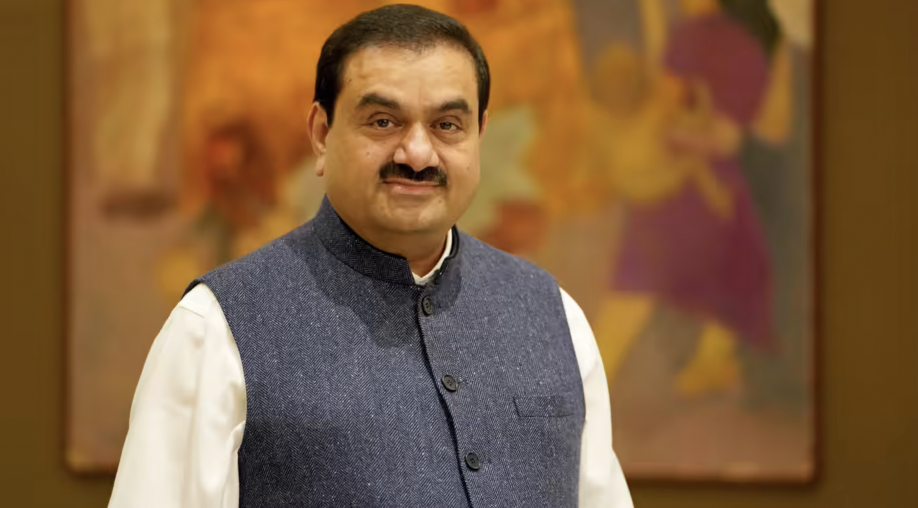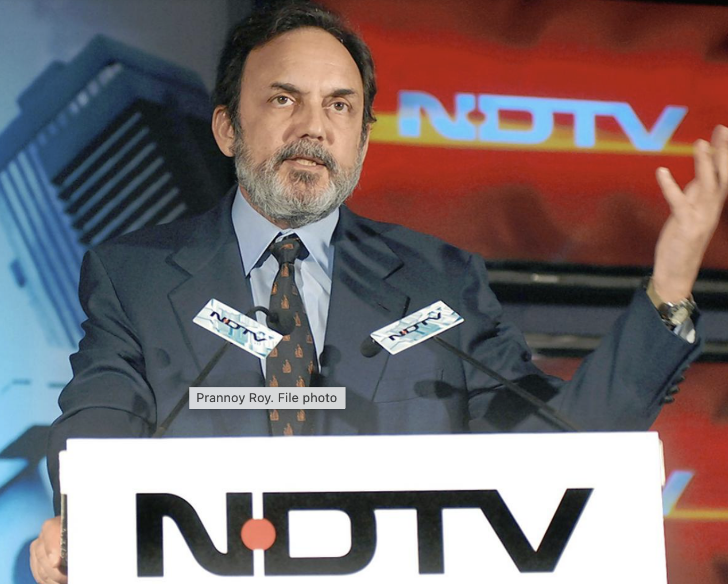India’s Richest Man Acquires Stake in News Portal Raising Concern about Media Independence
The Adani Group founded in 1988 by Gautam Adani as a modest exporting company today has business interests in power, gas, construction, media and defense Photo: Siddharaj Solanki/Financial Times
The RRPR Holding officially announced on Monday, Nov. 30, that they had transferred their 29.1% shares of New Delhi Television (NDTV), India's leading news publication and TV channel, to the Adani Group. In August this year, the Adani Group also put out an open offer for an additional 26% stake in NDTV, which will potentially give the industrial conglomerate a controlling interest in the media house. Gautam Adani, the CEO and founder of the Adani Group, has close ties with the ruling Bharatiya Janata Party (BJP), making people speculate that his buyout is an attempt by the government to control a large section of India's free media.
Adani, the wealthiest man in Asia and the third richest man in the world, has seen an overnight rise in his fortunes since the BJP formed the central government in 2014, with his net worth increasing by more than $26 billion over the past eight years. Modi and Adani's camaraderie dates back to when Adani rallied behind Modi during the aftermath of the Godhra 2002 riots, when Modi, then Chief Minister of Gujarat, was accused of mismanaging law and order, resulting in one of the deadliest communal riots witnessed in independent India. This cemented strong connections between the business tycoon and Modi's Bharatiya Janata Party, with Adani becoming the poster boy of Modi's brainchild, the Gujarat Model, which proposed a framework of economic growth led by private players.
This shed more light on Adani's motivation for getting a stake in NDTV, which was reputed to be a left leaning channel and a staunch critic of PM Modi. It remained one of the last televised broadcasters which openly took a stand against the establishment, which Adani's acquisition will undoubtedly reverse.
While international media houses condemn this hostile takeover by Adani, inquiries into the events leading up to the acquisition have shown that the NDTV founders, owners, and directors of RRPR, Pranoy and Radhika Roy, have a lot to answer for themselves. It was recently uncovered that RRPR, the promoter of NDTV, which held 29.1% of NDTV shares, took a loan of 49 million USD from Vishvapradhan Commercial Private Limited (VCPL) in 2009, which was a subsidiary of Reliance Industrial Limited, owned by one of the wealthiest business families in India.
The terms of the agreement between VCPL and RRPR were highly unusual. Reports suggest that the VCLP extended a zero interest payment loan; however, the agreement gave VCPL the option to convert the loan into full ownership of RRPR and, by extension, 29.1% of NDTV until the debt was fully repaid. This arrangement allowed billionaire Mukesh Ambani, the head of Reliance Industries, to wield considerable power over the media house until 2012 when he reportedly sold the subsidiary.
Reports reveal that Pranoy Roy and Radhika Roy’s, owners of NDTV and RRPR, secretly secured a loan from Reliance, one of India’s largest industrial groups, in 2009 Photo: Rajeev Bhatt
While Ambani has not been as blatant in his support for any political organization, political networking is an integral part of India's business culture. Industries often leverage personal connections with politicians to flout regulations and bypass red tape, making Reliance Industries' indirect control over NDTV a threat to the media house's credibility.
In August 2022, the Adani Group acquired a 100% stake in VCPL and converted RRPR's debt into full ownership, automatically acquiring a 29.1% stake in NDTV. The industrial group also announced an open buyout of an additional 26%, following SEBI regulations, which stipulate that enterprises must provide existing shareholders an exit option if they buy out more than 25% of a company.
If the open offer -- which stands until Dec. 5 -- goes through, the Adani Group will have more stake than the Roys, whose share stands at 32%, giving the group complete control over the channel. If the sale does not go through, Adani Group will still be the second largest shareholder, having just 3% less stake than the Roys, giving them a considerable voice at the table.
Adani's takeover of the NDTV is a reminder of how India's media space is increasingly becoming an oligopoly dominated by large industrial conglomerates through opaque, nebulous deals. In May 2022, for example, the Adani Group announced that it was buying 49% shares of Quintillion Business Media, which runs a popular online news portal called the Quint. Adani's rival, Ambani, purchased a majority stake in another leading media house, Network 18 in 2014, which broadcasts CNN-IBN, Forbes India, and other prominent channels, casting serious doubt on the independence of India's media.


